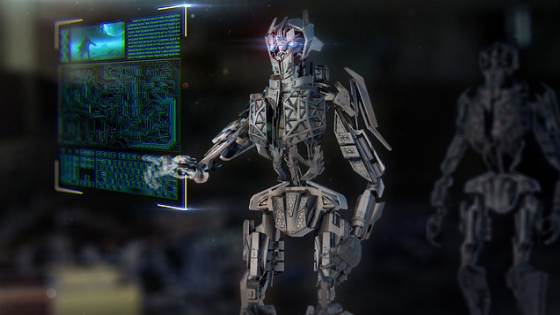Home automation has entered everyday life: so between voice assistants on smartphones and home speakers artificial intelligence is changing our lives.


In an age driven by technology in every aspect of life, artificial intelligence is reaching a certain maturity at a brisk pace. That of AI ( Artificial Intelligence ) that changes our life is an increasingly debated topic: often depicted as a sinister-looking robot that will take over our lives and our work or even replace humanity, in reality it is infused in everyday life in ways that rather than replacing our activities, they enhance and help them.
Virtual assistants like Cortana, Siri, Alexa and Google Assistant make calls or send messages to our place and type emails when we have busy hands, they show us the fastest route to go to an appointment and the best restaurants in the area where we are. And when they are connected to home automation, it is enough to evoke their name because they turn on or off the lights in the house, start the washing machine or turn up the volume of the Smart TV.
Artificial intelligence is an integral part of these actions, and even if it is something that we cannot always see or touch, we experience its benefits every day.
But how does the technology behind artificial intelligence work? AI is the ability of a machine to recognize images and words, learn and reason in a similar way to people. Artificial intelligence feeds on data, of which our world is inundated as our interactions are increasingly digital. Artificial intelligence uses sophisticated algorithms to sort huge amounts of data, identify patterns and make predictions: activities that would be repetitive and long, if not practically impossible, to be performed manually. But artificial intelligence can do this for us, giving us back the most precious gift of life: time.
A fundamental aspect of artificial intelligence that we all use every day to find information is research, which is found behind virtual assistants like Amazon Alexa or Cortana. Every time we interact with research we send a signal to AI systems, which can use it to reason and continue to implement, providing us with better, faster and more “human” answers.
But Artificial Intelligence can do much more than all this. For example, it is allowing farmers to be more productive by providing the optimal time to plant crops and monitor their well-being; protects devices from malware; it even helps scientists to treat diseases and disorders.
Artificial intelligence is therefore not only improving our quality of life: it is also helping to save lives and face some of the greatest challenges in our world. Obviously the problems linked to the advancement of this technology, such as the consequences on the world of work, must also be recognized, but the positive impact on a global and local scale is too great not to be enthusiastic. Ultimately, artificial intelligence has already changed our lives for the better, but we probably haven’t realized it yet.